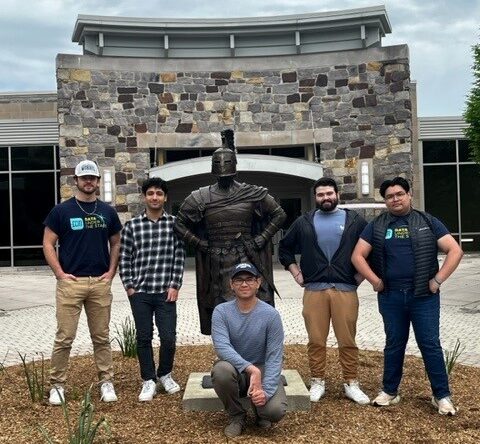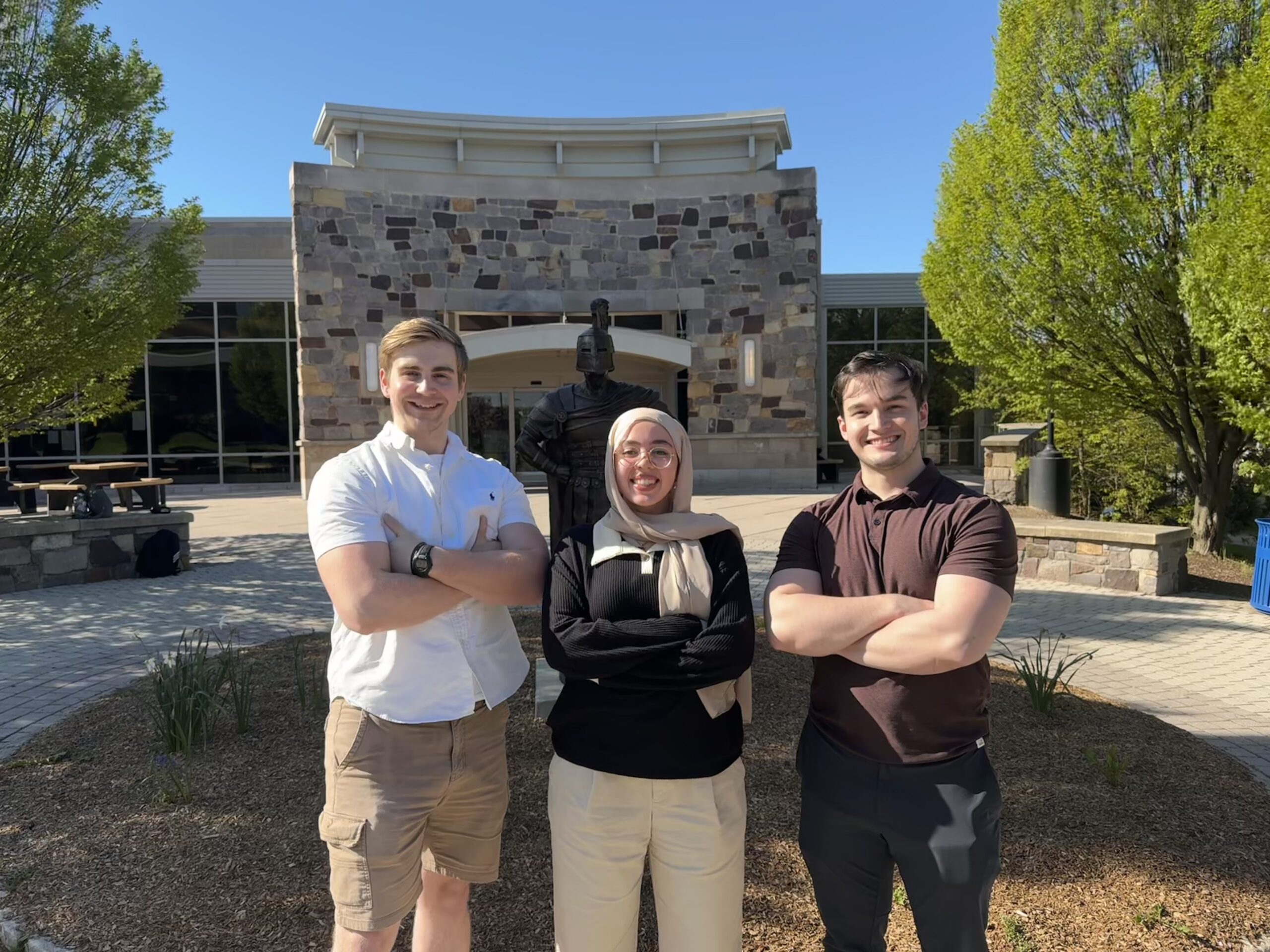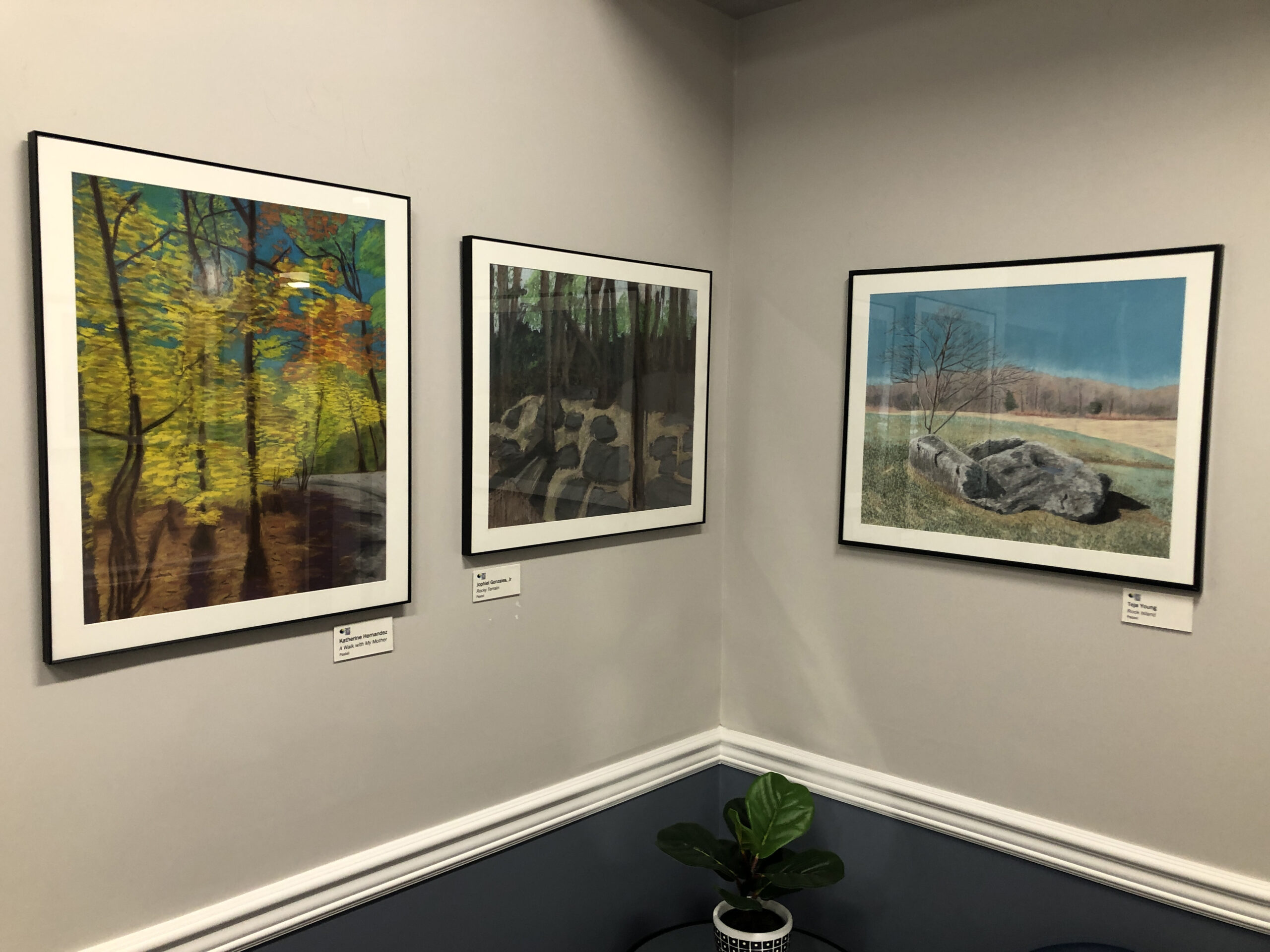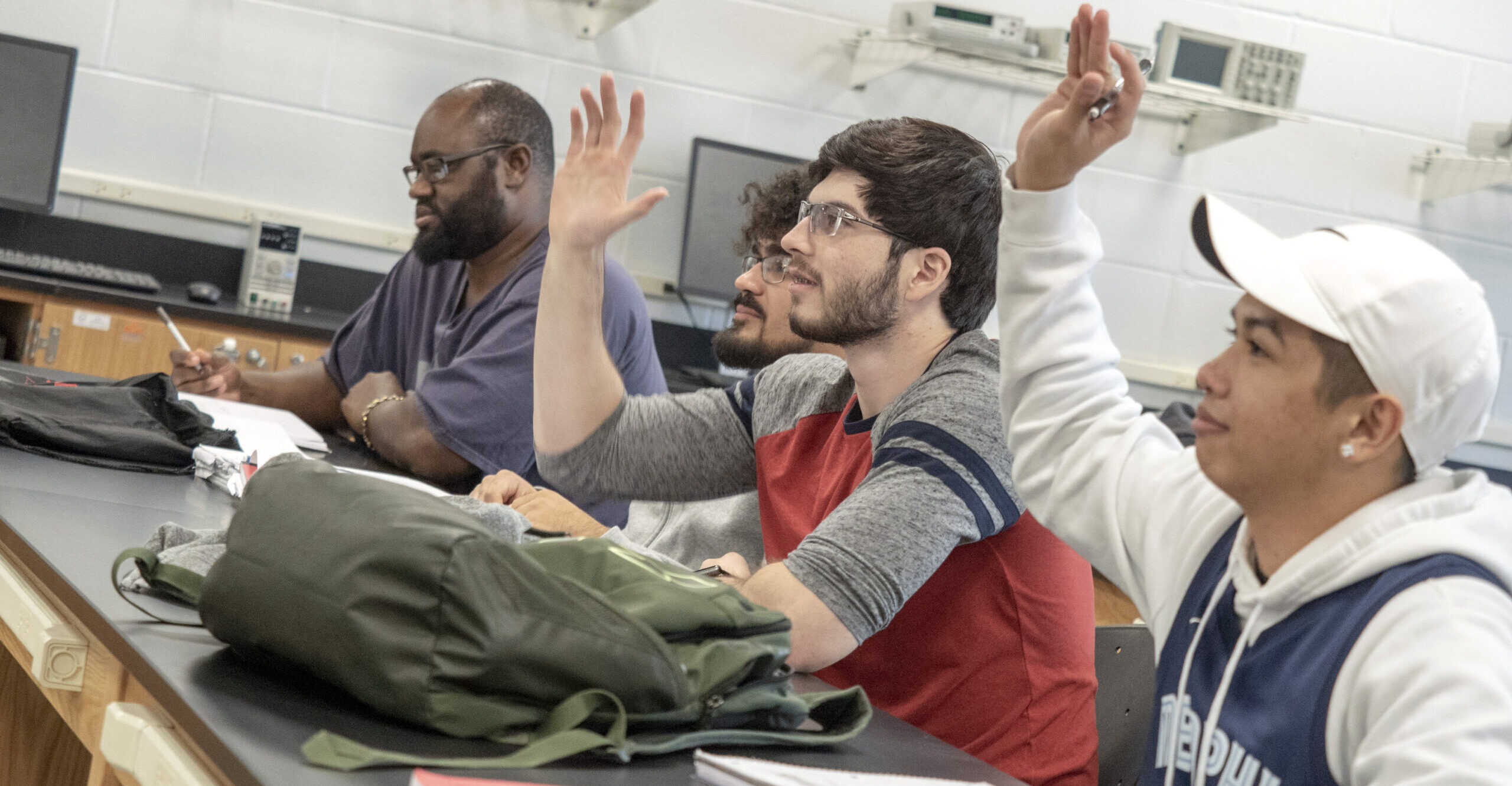What You Will Learn
Studying early childhood development and understanding how the education for this constantly evolving population offers a host of fulfilling career pathways.
The Associate of Science (A.S.) in Early Childhood Education program at CCM is an excellent starting point for those pursuing Teacher Certification.
The interdisciplinary nature of this program within the Department of Psychology and Education at CCM ensures that you develop theoretical and practical knowledge in areas such as:
- the arts and humanities
- child development
- family studies
- mathematics
- multicultural/global perspectives
- psychology
- social sciences
- technology
to be well-prepared to enter the workforce upon graduation or transfer to a four-year institution to earn a bachelor’s degree.
Curriculum
The Early Childhood Education program at CCM includes a 27-credit core with courses such as Child Psychology, Educational Psychology, Early Childhood Development, Curriculum, Teaching, and Learning, Effective Preschool Practices, Teaching In America, Behavioral Observation in Education, Psychology and Education of the Disabled and Music in Early Childhood.
All students in the Early Childhood Education program need to complete 300 hours of field experience. This is a requirement for the State of New Jersey Group Teacher approval and to be eligible for permanent employment within the internship hours.
Careers in the Field
An associate degree in child and family studies is a great starting point for career opportunities such as:
- Assistant Teacher
- Before and After Care Teacher
- Childcare Teacher
- Head Start/Early Head Start Teacher
- Paraprofessional/Aide
- Preschool Teacher
- Special Education Aide/Teacher
- Substitute Teacher
The program has excellent transfer agreements with many four-year colleges. Students frequently transfer to these New Jersey colleges and universities:
- Centenary University
- Drew University
- Kean University
- Montclair State University
- Ramapo College
- Rider University
- Rutgers University
- William Paterson University
Why Study Child and Family Studies at CCM?
- Outstanding instruction and experiential learning to prepare you for advanced study and child-related careers in a diverse and changing world.
- Curriculum aligns with state and national standards and blends academic and professional preparation in a wide variety of courses from the areas of early childhood education, human services, psychology and sociology.
- Courses are interactive with small class size, offering face-to-face, day, evening, hybrid and online options.
- Faculty are affiliated with the National Association for the Education of Young Children (NAEYC), New Jersey Association for Early Childhood Teacher Educators and the National Association for Teacher Educators at an Associate Level (ACCESS)
Paying for Your Early Childhood Education
Earning an associate degree in child and family studies is a powerful investment that will pay off over the course of your life, in both increased earnings and job satisfaction. But what is the upfront cost, and how do you afford it?
There’s good news: Money is available to help you pay for school! Our Financial Aid staff can provide lots of information about the process of finding funds to help pay for your education.
Featured Courses
Early Childhood Development
This course studies the growth and development of the child from birth through age eight. It will cover a variety of factors that influence child development such as diversity, culture, health, economic and family environment. Also, it provides an overview of the major theorists in the field of human development. There will be discussion regarding these theorists’ contributions to understanding how children grow and learn.
Effective Preschool Practices
This course studies effective, practical, research-based methods for developing preschool teachers. Course content is aligned with the national competency standards for the Child Development Associate (CDA) Credential. It will cover the essentials of planning a safe environment, advancing children’s development, building family partnerships, program operations, professional development, authentic assessment, and principles of developmentally appropriate learning. Attention will also be given to current research on brain development in young children, designing the learning environment, professional ethics, and cultural competence.
Behavior Observation in Education
This course uses weekly seminars and 30 hours of field experience in public schools to integrate theory and classroom observations in order for prospective teachers to understand curriculum development and instructional methods. Aspiring teachers learn how to use descriptive research methods to gain insight into the instructional needs of learners by observing them in their natural classroom settings. Armed with this experiential knowledge, students will use the seminar to report and discuss their observed findings, as well as relate this practical information to the theories of curriculum development and instructional strategies.
Your Early Childhood Education Faculty Advisor
Dr. Melissa Kasmin Interim Department Chairperson / Special Projects, Early Childhood
Email: mkasmin@ccm.edu
Office: DeMare Hall 327
Phone: 973-328-5631
Department: Psychology and Education






